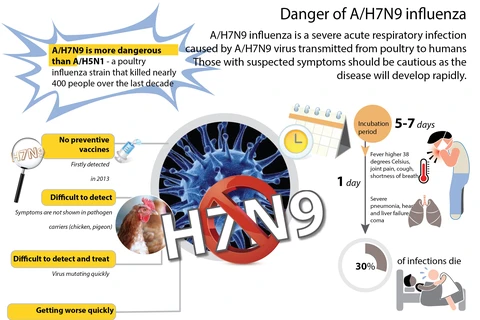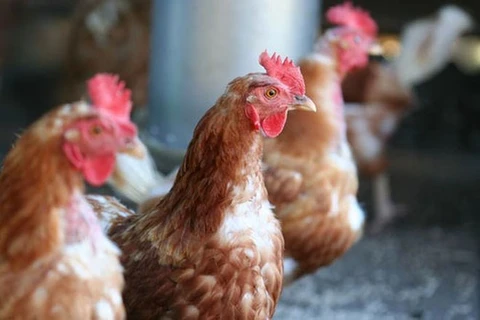Lang Son (VNA) – The northern border province of Lang Son has implemented a plan on urgent response to dangerous avian flu strains that are able to transmit to human as the A/H7N virus is ravaging Chinese localities bordering the province.
Along with spraying chemicals in local markets and tightening supervision over poultry slaughterhouses, Lang Son has also increased communications to help local people grasp information on the development of the epidemic as well as preventive measures.
A ban on poultry and poultry products trade and transportation across the border has been issued, while bordergateways have been disinfected.
Nguyen Nam Hung, head of the provincial Department for Animal Health, said that the agency has kept a close watch on high risk areas, especially markets for living poultry.
So far, Lang Son has not detected any avian influenza A (H7N9) virus, he said.
Lang Son has also prepared four epidemic scenarios in which adequate responding measures will be applied, said Hung, adding that in the worst situation when human infection is found, the province will ask for support from the National Steering Committee for Avian Flu Prevention and Control.
Meanwhile, Ly Minh Hai, head of the Animal Health Office of Lang Son city said that the agency has conducted random and regular inspections at poultry breeding and slaughtering facilities, while spraying chemicals in major markets daily through March.
The office has also taken poultry samples for testing three times per week to detect the A (H7N9)and other virus strains in the markets, he said.
So far, Vietnam has recorded no human A/H7N9 infections.
At least 270 H7N9 human infections had been reported in China, with 87 fatalities. Most cases were around the Yangtze and Pearl River deltas.-VNA
VNA
























